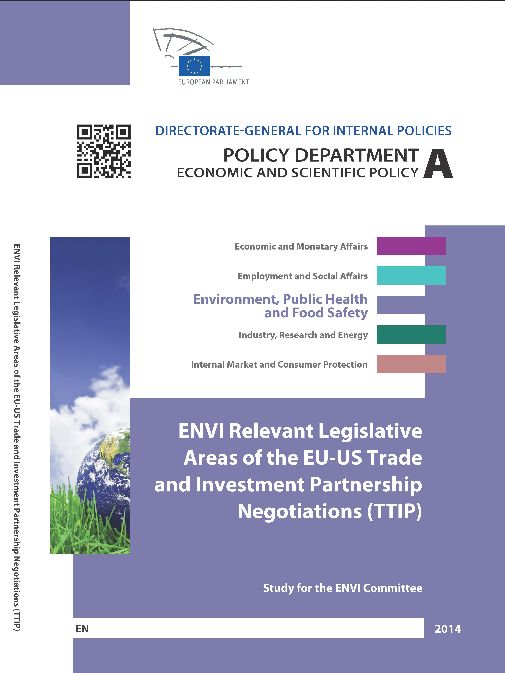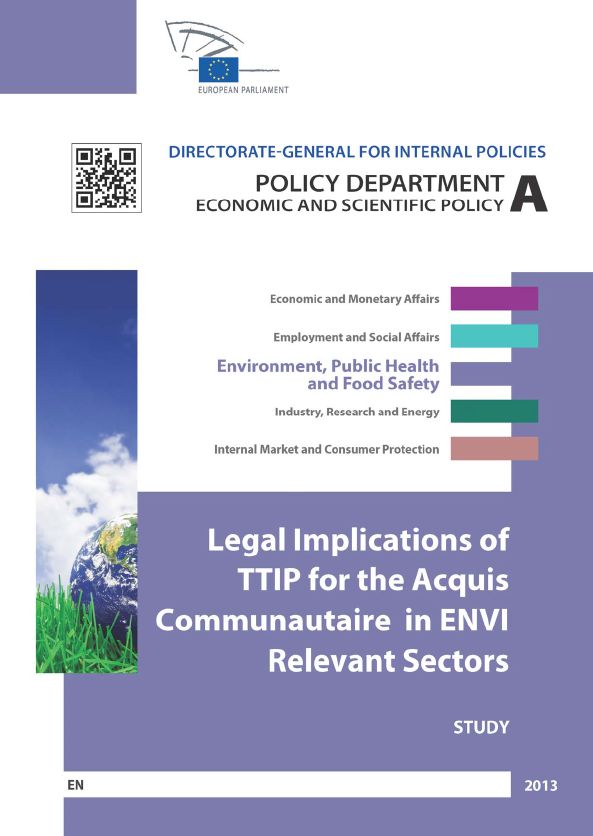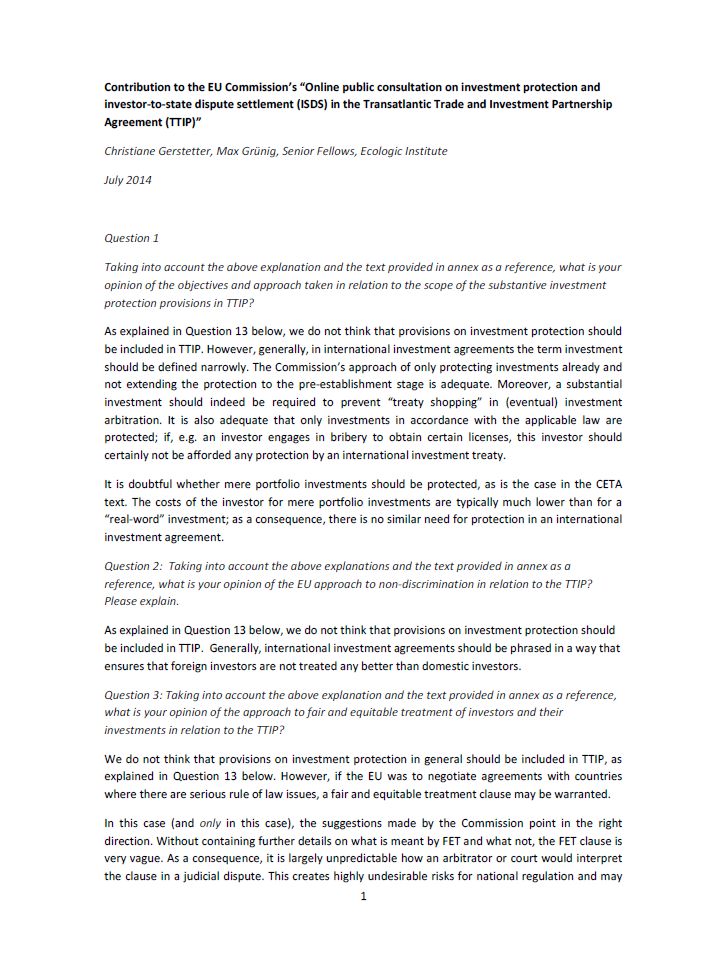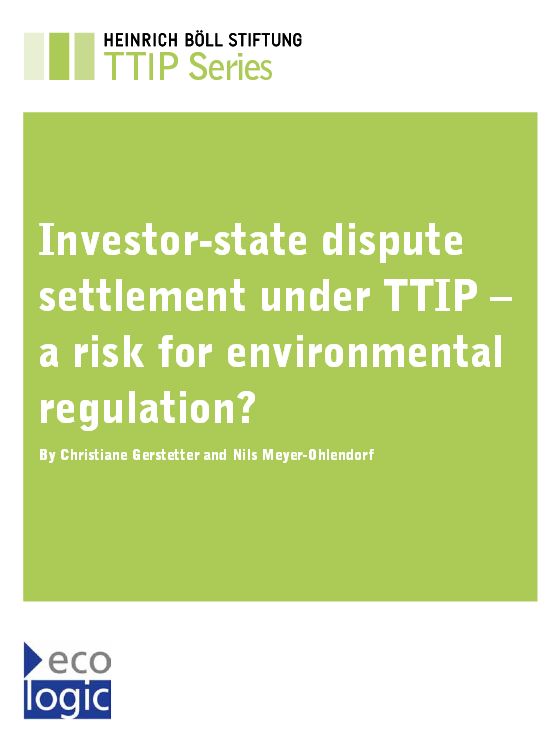ENVI Relevant Legislative Areas of the EU-US Trade and Investment Partnership Negotiations (TTIP)
Study for the ENVI Committee
- Publication
- Citation
Mudgal, Shailendra et al. 2014: ENVI Relevant Legislative Areas of the EU-US Trade and Investment Partnership Negotiations (TTIP). BIO by Deloitte, Ecologic Institute, Institute for European Environmental Policy. ISBN: 978-92-823-6137-5 (paper), 978-92-823-6136-8 (pdf).
A recent study provides the members of the European Parliament Committee on Environment, Public Health, and Food Safety (ENVI Committee) with the needed expertise to monitor the ongoing negotiations between the United States and the European Commission for the Transatlantic Trade and Investment Partnership (TTIP) agreement. The study was co-authored by Ecologic Institute, Bio IS, and the Institute for European Environmental Policy (IEEP) and serves as a follow-up to a 2013 study entitled "Legal Implications of TTIP for the Acquis Communautaire in ENVI Relevant Sectors." Both studies are available for download.
The stated objective of the TTIP negotiations, which were launched in July 2013, is to facilitate commercial exchanges of goods and services between both sides of the Atlantic and to enhance investments on each side. This is to be achieved through the removal of trade barriers, which include tariffs and non-tariff measures such as differences in regulations. There are however substantial regulatory differences between the EU and the US. TTIP negotiations therefore raise concerns, notably among members of civil society, that harmonisation that could result from these negotiations may undermine the levels of protection of public health and safety, and the environment.
Against this background, this study compares and highlights the main differences in key EU and US legislation in eight TTIP-relevant areas: medicinal products for human use and medical devices; cosmetics; food and nutrition; sanitary and phyto-sanitary; nanomaterials; cloning; raw materials and energy; and motor vehicles.
The analysis of the study suggests that the degree of divergence between the regulatory systems of the EU and the US, and thus the development of future requirements and potential collaboration, varies depending on the area concerned.
Differences between regulatory systems and approaches to risk analysis
In some cases, the study concludes that the differences are so significant that they seem unlikely to be bridged, in particular where the EU has a binding system in place whereas the US has a system which is partially binding or voluntary, which is the case for cosmetics and cloning. Concerning the areas of food safety and sanitary and phyto-sanitary measures, the diverging approaches to risk analysis, e.g. a precautionary approach in the EU vs a "sound-science" approach in the US, may also further complicate a convergence of regulations.
Convergence through technical cooperation and mutual recognition of standards
In areas where differences between EU and US regulatory systems are mainly of a technical nature, e.g. technical environmental standards for motor vehicles, greater convergence could potentially be achieved through increased technical cooperation or mutual recognition of environmental regulations, without significant impacts on levels of portections. Finally, in areas where there are currently no binding regulations on either side of the Atlantic (e.g. nanomaterials), convergence may be easier to achieve through scientific and technical cooperation and better coordination of EU and US regulators.
The Ecologic team contributed, in particular, an overview of EU regulation on cloning, as well as on US regulation on food issues, fracking, fuel quality standards, clonning, and SPS measures.






